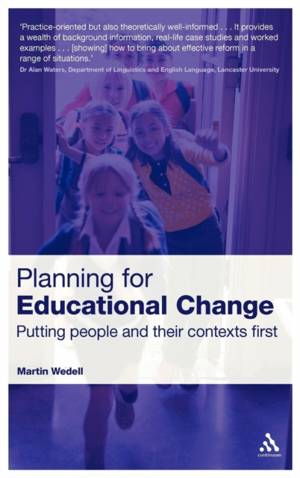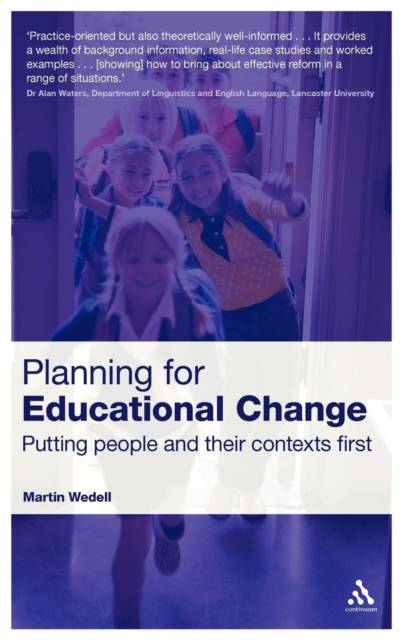
- Afhalen na 1 uur in een winkel met voorraad
- Gratis thuislevering in België vanaf € 30
- Ruim aanbod met 7 miljoen producten
- Afhalen na 1 uur in een winkel met voorraad
- Gratis thuislevering in België vanaf € 30
- Ruim aanbod met 7 miljoen producten
Zoeken
Planning for Educational Change
Putting People and Their Contexts First
Martin Wedell
Hardcover | Engels
€ 449,45
+ 898 punten
Uitvoering
Omschrijving
This book highlights the current ideas about the what, why and how of educational change and what these suggest about the essential issues that change policy makers and planners need to consider. It analyses international case studies of change initiatives to illustrate how the change process can be affected when such issues are insufficiently acknowledged or ignored. Finally the book introduces a number of key questions for educational change practitioners to consider when they find themselves responsible for the planning and/or implementation and/or monitoring of changes within an institution, a locality or a region. Educational change scenarios, from change within a single institution to local implementation of a national change, are used to show how answers to these questions can help change planners to closely match their implementation processes to their local contextual realities.
Specificaties
Betrokkenen
- Auteur(s):
- Uitgeverij:
Inhoud
- Aantal bladzijden:
- 194
- Taal:
- Engels
Eigenschappen
- Productcode (EAN):
- 9780826487261
- Verschijningsdatum:
- 1/06/2009
- Uitvoering:
- Hardcover
- Formaat:
- Genaaid
- Afmetingen:
- 156 mm x 234 mm
- Gewicht:
- 449 g

Alleen bij Standaard Boekhandel
+ 898 punten op je klantenkaart van Standaard Boekhandel
Beoordelingen
We publiceren alleen reviews die voldoen aan de voorwaarden voor reviews. Bekijk onze voorwaarden voor reviews.











